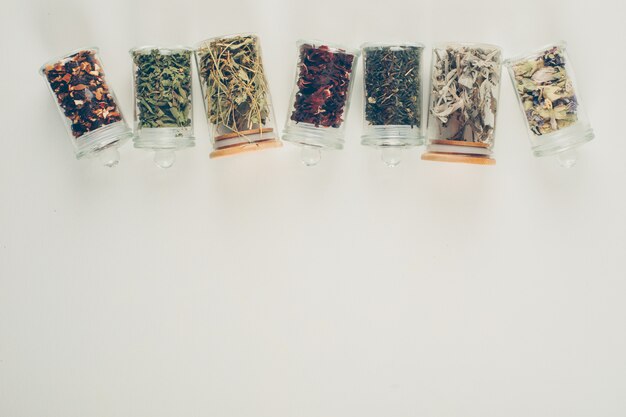Kasa in Ayurveda – Understanding Its Role, Causes, and Remedies

Introduction to Kasa in Ayurveda
Kasa, or cough, is a common respiratory issue that affects people of all ages. In Ayurveda, Kasa is not seen merely as a symptom but as a reflection of the imbalance in the body's doshas—primarily Vata, Kapha, and sometimes Pitta. Understanding the Ayurvedic perspective on Kasa can help you find natural remedies and treatments that aim to balance the doshas, improve respiratory health, and support overall well-being. This article will explore the causes, symptoms, and Ayurvedic remedies for Kasa, offering insights into how Ayurveda can help alleviate this condition.
Don't wait or self medicate. Start chat with Doctor NOW
Historical Roots & Ayurvedic Significance of Kasa
In Ayurvedic texts, Kasa is considered a disturbance in the respiratory system, often caused by an imbalance in the Kapha dosha. It is typically associated with excess mucus production, making breathing difficult. Ancient Ayurvedic sages emphasized the importance of maintaining balance in the body, as imbalances in the doshas, particularly Kapha, lead to the accumulation of toxins (Ama) in the respiratory tract, triggering conditions like Kasa. Ayurveda also links this disorder to factors like poor digestion, weak immune systems, and seasonal changes, which can lead to aggravated doshas and chronic health issues.
Causes of Kasa in Ayurveda
1. Imbalanced Doshas
Kasa is primarily caused by an imbalance in the Kapha dosha, which leads to excess mucus production in the respiratory system. However, when Vata is aggravated, it can cause dry, persistent coughing, while an imbalance in Pitta can lead to inflammatory conditions in the throat, resulting in a sore, burning cough.
2. Weak Digestive Fire (Agni)
In Ayurveda, Agni, or digestive fire, plays a vital role in maintaining health. When Agni is weak, it leads to the formation of Ama, a toxic substance that accumulates in the body. This Ama can travel to the lungs and respiratory system, causing coughing and other respiratory issues.
3. Seasonal Changes
Seasonal changes, particularly during the Vata and Kapha seasons, often lead to fluctuations in the doshas, making individuals more susceptible to conditions like Kasa. In the rainy season, the increased humidity can aggravate Kapha, leading to cough and respiratory congestion.
4. Allergens and Environmental Factors
Exposure to allergens, pollutants, and irritants like smoke can trigger an imbalance in the doshas, leading to respiratory symptoms such as coughing. In Ayurveda, maintaining a clean and supportive environment is essential for preventing Kasa.
Symptoms of Kasa (Cough)
1. Persistent Coughing
A constant, often dry or productive cough, is a primary symptom of Kasa. The cough may worsen at night or during seasonal transitions, especially in the morning when Kapha is more aggravated.
2. Mucus Production
In cases of Kapha imbalance, the cough is usually productive, with excessive mucus or phlegm being expelled. This can lead to difficulty breathing and discomfort in the chest.
3. Throat Irritation
Kasa can cause irritation and soreness in the throat, particularly when Pitta is aggravated. This may result in a burning sensation and discomfort while swallowing.
4. Shortness of Breath
When Kasa is severe, it may lead to shortness of breath and wheezing due to the obstruction of the airways caused by excess mucus or inflammation.
Ayurvedic Remedies for Kasa
1. Herbal Remedies
Ayurvedic herbs are powerful tools in managing Kasa. Some of the most effective herbs include:
- Tulsi (Holy Basil): Known for its antimicrobial and anti-inflammatory properties, Tulsi helps clear the respiratory passages and supports immune health.
- Ginger: A warming herb that helps reduce Kapha and improve digestion, ginger can relieve coughing and congestion.
- Licorice (Yashtimadhu): Soothes the throat and reduces irritation caused by chronic coughing.
- Pippali (Long Pepper): Promotes respiratory health and helps clear mucus from the lungs.
2. Ayurvedic Formulations
Ayurvedic formulations like Talisadi Churna and Sitopaladi Churna are commonly prescribed to treat cough and respiratory issues. These herbal powders contain a combination of ingredients that help reduce congestion, soothe the throat, and balance the doshas.
3. Nasal Oil Application (Nasya)
Nasya, the Ayurvedic practice of administering herbal oils through the nostrils, is an effective remedy for Kasa. This treatment helps clear the nasal passages, reduce excess mucus, and relieve symptoms of coughing.
4. Steam Inhalation
Inhaling steam with a few drops of Ayurvedic herbs like Eucalyptus or Peppermint can help alleviate congestion, soothe the throat, and provide relief from coughing.
5. Dietary Adjustments
A light, easily digestible diet is recommended for individuals suffering from Kasa. Foods that balance Kapha dosha, such as warm soups, herbal teas, and fresh vegetables, can help support healing. Avoiding dairy, cold foods, and sugary snacks can also reduce the production of mucus.
How Kasa is Treated in Ayurvedic Detox Programs
Kasa can often be part of a larger detoxification process known as Panchakarma. Panchakarma therapies, such as Swedana (steam therapy) and Vamana (therapeutic vomiting), are used to eliminate toxins and restore doshic balance. These treatments help clear the respiratory system and improve overall health.
Frequently Asked Questions for Kasa in Ayurveda
How does Ayurveda treat Kasa or cough naturally?
Ayurveda treats Kasa by focusing on balancing the doshas, particularly Kapha, and addressing the root cause of the cough. Herbs like Tulsi, Ginger, and Licorice are used to clear mucus, reduce inflammation, and soothe the throat. Ayurvedic treatments also include dietary adjustments, steam inhalation, and Nasya to promote respiratory health.
What are the main causes of Kasa in Ayurveda?
In Ayurveda, the primary causes of Kasa are an imbalance in the Kapha dosha, weak digestive fire (Agni), exposure to seasonal changes, and environmental allergens. These factors lead to the accumulation of toxins and excess mucus, resulting in coughing and respiratory distress.
Can Ayurvedic remedies cure a persistent cough?
Yes, Ayurvedic remedies can significantly reduce symptoms of a persistent cough by addressing the underlying doshic imbalance, boosting immunity, and promoting detoxification. Consistent use of herbal remedies, dietary adjustments, and Ayurvedic therapies can lead to long-term relief from chronic cough.
How long does it take for Ayurvedic treatments to show results for Kasa?
The time it takes for Ayurvedic treatments to show results can vary depending on the severity of the condition and the individual’s health. Most people start to notice improvement within a few weeks of regular use of Ayurvedic herbs, dietary changes, and therapies, but it is important to follow a holistic treatment plan.
Are there any side effects to using Ayurvedic remedies for Kasa?
Ayurvedic remedies for Kasa are generally safe when used correctly. However, some people may experience mild digestive discomfort or allergic reactions to certain herbs. It is always advisable to consult a qualified Ayurvedic practitioner before starting any new treatment.
What dietary changes should be made to help treat Kasa?
To treat Kasa, Ayurvedic practitioners recommend avoiding cold foods, dairy products, and sugary snacks, which can aggravate Kapha and increase mucus production. Instead, opt for warm, light foods such as soups, herbal teas, and steamed vegetables to support digestion and reduce congestion.
Can Kasa be prevented with Ayurvedic practices?
Yes, Kasa can be prevented by maintaining a balanced diet, managing stress, and following seasonal routines prescribed in Ayurveda. Regular use of Ayurvedic herbs to strengthen the immune system and digestive fire can also help prevent the onset of respiratory issues like Kasa.
Conclusion & Expert Insights
Kasa, or cough, is more than just a temporary inconvenience—it is a reflection of the body's internal balance. By understanding its root causes and utilizing Ayurvedic treatments, individuals can address Kasa effectively and promote long-term respiratory health. Through a combination of herbal remedies, dietary modifications, and Ayurvedic therapies like Panchakarma, Ayurveda offers a holistic approach to treating and preventing Kasa, helping individuals breathe easier and live healthier lives.
References & Further Reading
- Lad, V. (2002). Ayurveda: The Science of Self-Healing.
- Chopra, D. (1996). Perfect Health: The Complete Mind/Body Guide.
- National Institute of Ayurveda:
- Journal of Ayurveda and Integrative Medicine for research articles on Ayurvedic respiratory treatments.
Got any more questions?
Ask Ayurvedic doctor a question and get a consultation online on the problem of your concern in a free or paid mode.
More than 2,000 experienced doctors work and wait for your questions on our site and help users to solve their health problems every day.



